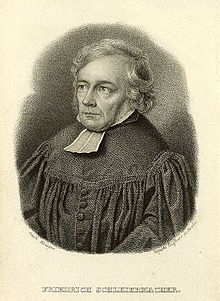====
THE ROUTLEDGE HANDBOOK OF PHENOMENOLOGY OF EMOTION
The emotions occupy a fundamental place in philosophy, going back to Aristotle. However, the phenomenology of the emotions has until recently remained a relatively ne- glected topic. The Routledge Handbook of Phenomenology of Emotion is an outstanding guide and reference source to this important and fascinating topic. Comprising forty-nine chapters by a team of international contributors, this handbook covers the following topics:
• historical perspectives, including Brentano, Husserl, Sartre, Levinas [sic] and Arendt;
• contemporary debates, including existential feelings, situated affectivity, embodiment, art, morality and feminism;
• self-directed and individual emotions, including happiness, grief, self-esteem, and shame;
• social emotions, including sympathy, aggressive emotions, collective emotions and political emotions;
• borderline cases of emotion, including solidarity, trust, pain, forgiveness and revenge.
Essential reading for students and researchers in philosophy studying phenomenology, ethics and moral psychology and philosophy of psychology, The Routledge Handbook of Phenomenol- ogy of Emotion is also suitable for those in related disciplines such as religion, sociology and anthropology.
----
Thomas Szanto is Associate Professor of Philosophy at the Center for Subjectivity Research, University of Copenhagen, Denmark.
Hilge Landweer is Professor of Philosophy at Freie Universität Berlin, Germany.
====
THE ROUTLEDGE HANDBOOK OF PHENOMENOLOGY OF EMOTION
Editorial Reviews
"A research-oriented anthology ideally should provide the reader/researcher with an extensive historical perspective, a comprehensive overview of current debates/controversies, and an opening to new issues for ongoing study.
Editors Szanto and Landweer deliver a comprehensive collection satisfying precisely these conditions[.] ...
Overall, the book is an exploration of areas central to the ongoing study of emotions for the further development of phenomenology in contemporary philosophy/psychology:
- tensions between collective/individual emotions,
- affective intentionality in the framing of emotional discourse,
- consciousness and the world-disclosing aspects of emotions,
- the important identity-fulfilling function of emotions, and
- the authentic/inauthentic evaluative movement of emotions informing moralities. ...
Summing Up: Recommended. Upper-division undergraduates. Graduate students and faculty." - J. Gough, Choice
===
About the Author
Thomas Szanto is Associate Professor of Philosophy at the Center for Subjectivity Research, University of Copenhagen, Denmark.
Hilge Landweer is Professor of Philosophy at Freie Universität Berlin, Germany.
===
Publisher : Routledge; 1st edition (April 22, 2020)
Print length : 612 pages
===
CONTENTS
Acknowledgments x
Notes on contributors xi
Introduction: the phenomenology of emotions—above and beyond ‘What it is Like to Feel’ 1
Thomas Szanto and Hilge Landweer
PART 1 Historical perspectives
39
1 Franz Brentano 41
Michelle Montague
2 Edmund Husserl 53
James Jardine
3 Alexander Pfänder 63
Genki Uemura and Toru Yaegashi
4 Max Scheler 72
Matthias Schloßberger
5 Moritz Geiger 87
Alessandro Salice
6 Else Voigtländer 96
Íngrid Vendrell Ferran
7 Martin Heidegger and Otto Friedrich Bollnow 104
Gerhard Thonhauser
8 Dietrich von Hildebrand 114
Jean Moritz Müller
9 Edith Stein 123
Antonio Calcagno
10 Gerda Walther and Hermann Schmalenbach 133
Linas Tranas and Emanuele Caminada
11 Aurel Kolnai 144
Íngrid Vendrell Ferran
12 Aron Gurwitsch 153
Eric Chelstrom
13 Jean-Paul Sartre 159
Anthony Hatzimoysis
14 Emmanuel Levinas 168
Sophie Loidolt
15 Hannah Arendt 177
Judith Mohrmann
16 Simone de Beauvoir 187
Maren Wehrle
17 Maurice Merleau-Ponty 197
Joel Krueger
18 Frantz Fanon 207
Alia Al-Saji
19 Hermann Schmitz 215
Henning Nörenberg
PART 2 Systematic issues and contemporary debates 225
20 Affective intentionality and the reactive attitudes 227
Bennett W. Helm
21 The varieties of affective experience 239
John J. Drummond
22 Existential feelings 250
Matthew Ratcli!e
23 Emotional atmospheres 262
Tonino Gri!ero
24 Values, norms, justidcation and the appropriateness of emotions 275
Roberta De Monticelli
25 Morality and the emotions 288
John J. Drummond and Sonja Rinofner-Kreidl
26 Situated affectivity 299
Achim Stephan and Sven Walter
27 Feminism, embodiment and emotions 312
Luna Dolezal
28 Embodied interaffectivity and psychopathology 323
Thomas Fuchs
29 Art and emotion 337
Noël Carroll
PART 3 Self-directed and individual emotions 347
30 Shame 349
Dan Zahavi
31 Self-esteem, pride, embarrassment, and shyness 358
Anna Bortolan
32 Humility, humiliation and a$iction 369
Anthony J. Steinbock
33 Disgust 380
Sara Heinämaa
34 Fear, anxiety and boredom 392
Lauren Freeman and Andreas Elpidorou
35 Grief 403
Line Ryberg Ingerslev
36 Joy and happiness 416
Michela Summa
PART 4 Other-directed and collective emotions 427
37 Empathy, sympathy and compassion 429
Thiemo Breyer
38 Aggressive emotions: from irritation to hatred, contempt
and indignation 441
Hilge Landweer
39 Hetero-induced shame and survivor shame 455
Alba Montes Sánchez
40 Joint feeling 466
Héctor Andrés Sánchez Guerrero
41 Political emotions 478
Thomas Szanto and Jan Slaby
PART 5 Borderline cases of emotions 495
42 Forgiveness and revenge 497
Fabian Bernhardt
43 Gratitude 509
Sonja Rinofner-Kreidl
44 Trust 522
Nicolas de Warren
45 Feeling solidarity 532
Jan Müller
46 Pain 543
Fredrik Svenaeus
47 The uncanny 553
Dylan Trigg
48 Hate of evil 564
Hans Bernhard Schmid
49 Love 575
Angelika Krebs
Index 589
===

